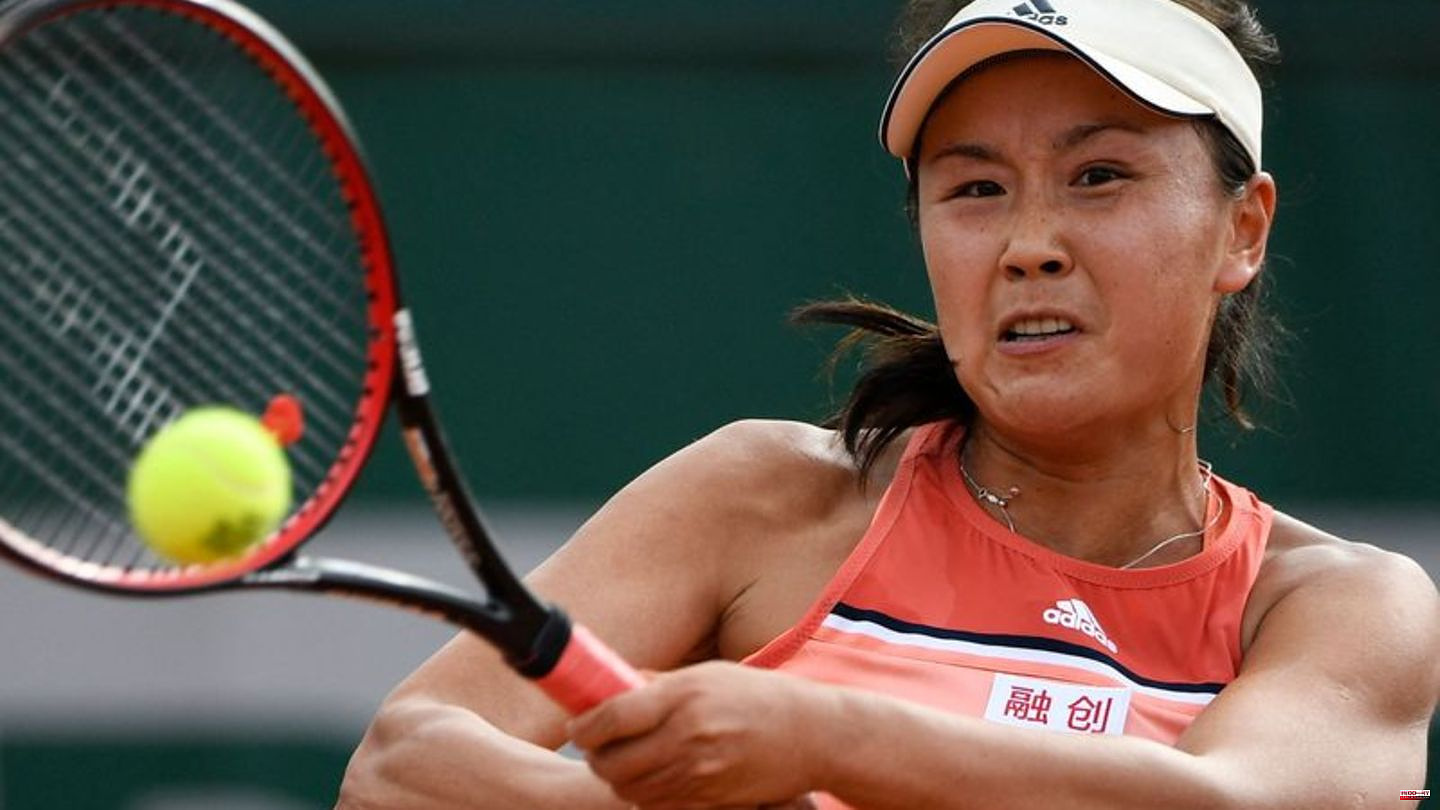How Peng Shuai is really doing remains a mystery even a year after the scandal began. The tennis player has not appeared in public for months, no videos or pictures have appeared.
The former top politician Zhang Gaoli, on the other hand, was only allowed to sit in the front row at the party congress in Beijing, which takes place every five years, despite allegations of sexual abuse against him. It's a sign that the party stands by him. There is no public interest in working up the case.
Peng Shuai has been missing from the tennis tour for a long time
"She is not free for a moment. I believe that she is still under constraints that we can only begin to imagine," says the officer for the Society for Threatened Peoples, Hanno Schedler, of the dpa: "We continue to assume that she is a prisoner of the state, as she has been for a year. A prisoner in that she is unlikely to be able to move freely or express herself freely. The state has enough leverage."
On November 2, 2021, just three months before the Winter Olympics in Beijing, the case began when the former world number 14 in singles shared her fate on the Chinese short message service Weibo: The former Wimbledon and French Open winner in doubles described it that she had been in a relationship with the married politician, who was decades her senior, over a period of ten years with interruptions.
The post, whose authenticity the dpa could not verify, spoke of love and affection, but also of at least one unwanted sexual assault. China's strict censors stepped in immediately. The post was quickly deleted.
Peng Shuai later denied making the allegations. It was a misunderstanding. She was missing for weeks, which she later denied as well. The photos and videos that they then showed, for example when visiting a restaurant or at a cross-country skiing event, seemed just as posed and staged as appearances at the Olympics. During the Winter Games in Beijing in February, she met IOC President Thomas Bach and has not been seen since. "I don't assume that she can play tennis again. Why? Because the state doesn't want it," says Schedler. The 36-year-old played her last match well before the allegations.
WTA finals in Texas held in Shenzhen, China
The case has further consequences on the tennis tour. The glamorous season finale of the WTA with the eight best players of the season will be held in Texas from Monday - and not in Shenzhen, China as planned. WTA boss Steve Simon had reacted exceptionally, canceled all tournaments in China and thus forgone billions in business. However, there are now signals that the WTA 2023 could possibly return to China. Simon attaches this to conditions: "We will not compromise on our basic principles," he says when asked by the dpa.
The professional organization has been demanding fair clarification for a year. "We've had confirmation that Peng is safe and comfortable, but we haven't met her in person," says Simon. "Our thoughts remain with Peng Shuai."
In contrast to the WTA, the International Olympic Committee (IOC) came under criticism for its positioning. Bach's meeting with Peng Shuai in Beijing could not allay public doubts about her well-being, the IOC's "silent diplomacy" may have been in the interest of the Olympic host, who had little interest in further debates about the athlete.
On the anniversary, the IOC once again points out that the Athletes' Commission is still in contact with the former number one in the double world rankings. There have been contact several times since the Olympics. "A visit to Europe will continue to be discussed, as agreed in Beijing," the IOC said. The timing depends on the strict corona rules in China. Will Peng Shuai really ever visit the Olympic Museum in Lausanne? "If you see her again, I'm assuming that everything will be choreographed by the state," says Schedler.
Strict censorship in China
In China, the allegations and the disappearance had been tightly censored from the start. Chinese media reported almost nothing at all. Discussions on social networks were mostly deleted immediately. The same thing happened to other women who tried to go public with allegations in recent years. Because of a refusal by the authorities and strict censorship, a
The allegations obviously didn't stick with Zhang Gaoli, the powerful ex-politician. The party congress also showed that the leadership sees no need for action on the issue of equal rights, despite the massive dominance of men. On the contrary: the only woman who was previously represented in the 25-strong Politburo has just been retired.












